If you live with someone who has an ADHD diagnosis, it’ll come as no shock to you that ADHD causes sleep issues. For myself, it answered a lot of questions I had about my husband’s erratic sleep and my children’s sleep challenges. In this post, I’ll talk about some of the sleep difficulties that ADHDers experience. I’ll also share some sleep help for ADHD, based on what our family has tried that worked well.
This post contains affiliate links. As an Amazon Associate I earn from qualifying purchases made from the links on this site, at no extra cost to you. Thanks for supporting our family business!
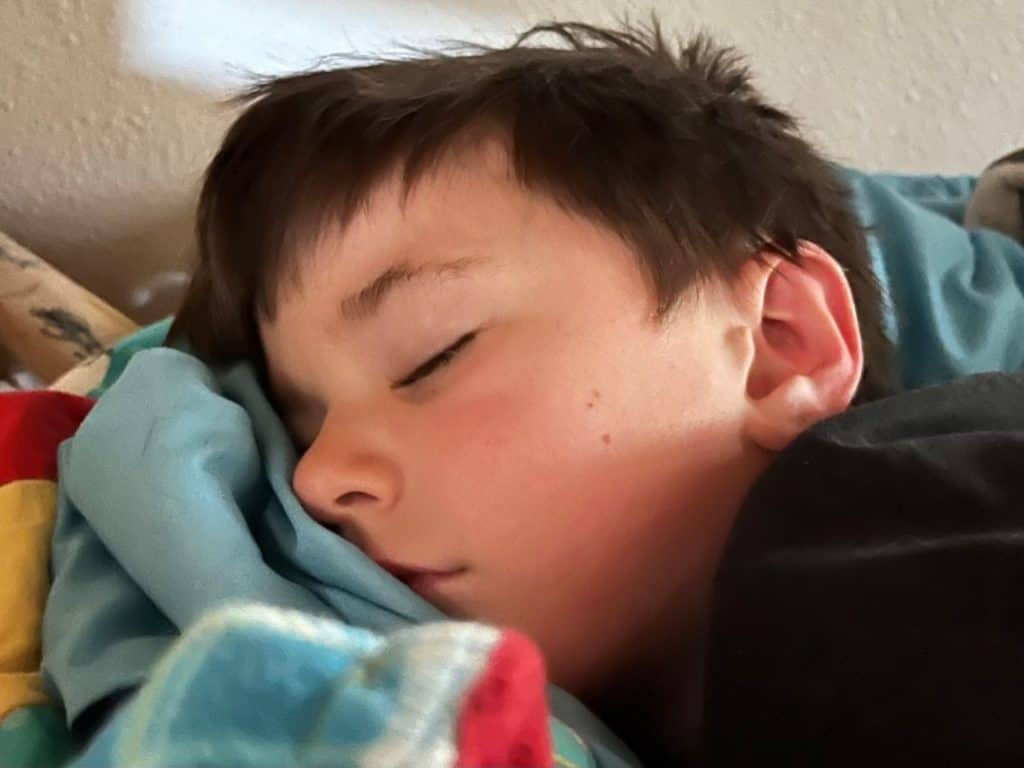
Disclaimer: I am not a medical professional, and these ideas should not be construed as medical advice. I am simply sharing what has worked for our family.
Table of Contents
Our experience with undiagnosed ADHD and sleep issues
My husband Brian has always had a hard time falling asleep, but neither of us realized that this was due to ADHD. We thought it was just bad habits or being undisciplined.
Our opposing sleep patterns presented challenges to our relationship from the very beginning. My husband was a night owl, and I was an early bird.
When I started to study ADHD after our family’s diagnosis, I discovered that many ADHDers suffer from poor sleep. They often don’t get enough sleep or have poor quality sleep.
Before ADHD diagnosis
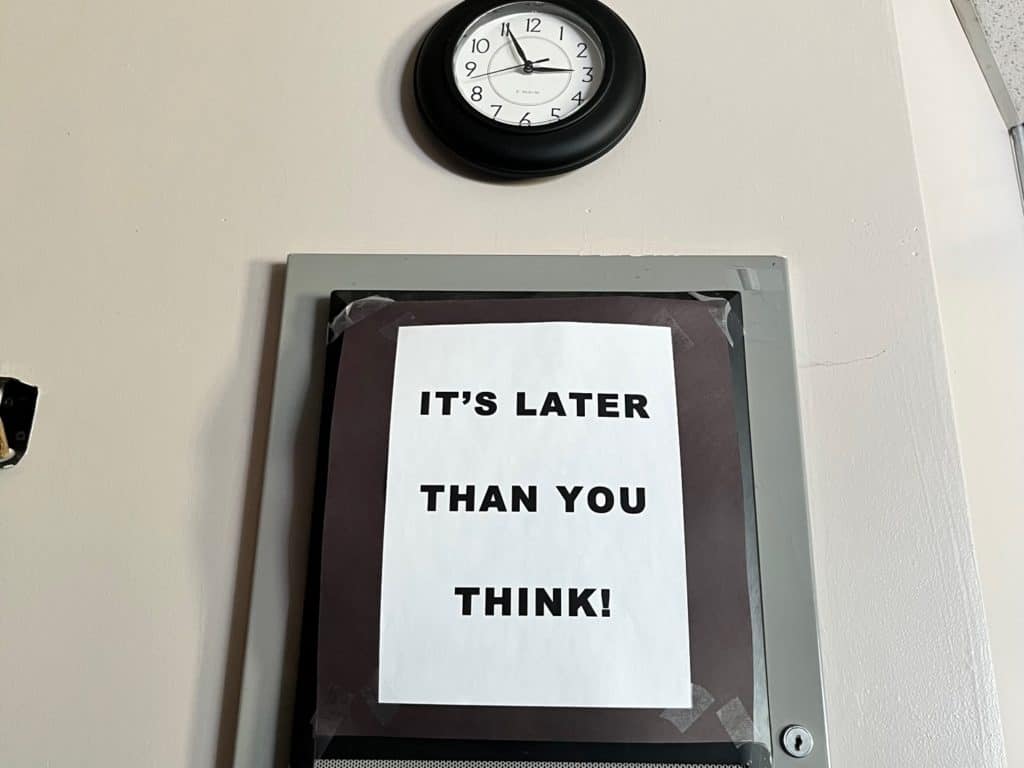
Even though Brian tried to get into a habit of going to bed early and getting up early, he would often take several hours to settle down. Sometimes his poor sleep looked a lot like restless legs syndrome — fidgety and uncomfortable. Other times it seemed like his brain just couldn’t rest from the racing thoughts.
Brian often went for several days or weeks with less than 6 hours of sleep per night. I saw him run on seemingly impossible sleep deficits. Eventually, he would crash and catch up on some of it, sleeping late for several days.
Childhood ADHD sleep issues
When we started having children, I noticed that they each had their sleep patterns. Our oldest had difficulty staying in bed and took a long time to fall asleep, even from early childhood.
Our second child dropped all daytime naps by age 2, despite our every attempt to encourage an afternoon nap — she just didn’t need it! We later realized that these were possibly early indicators of ADHD.
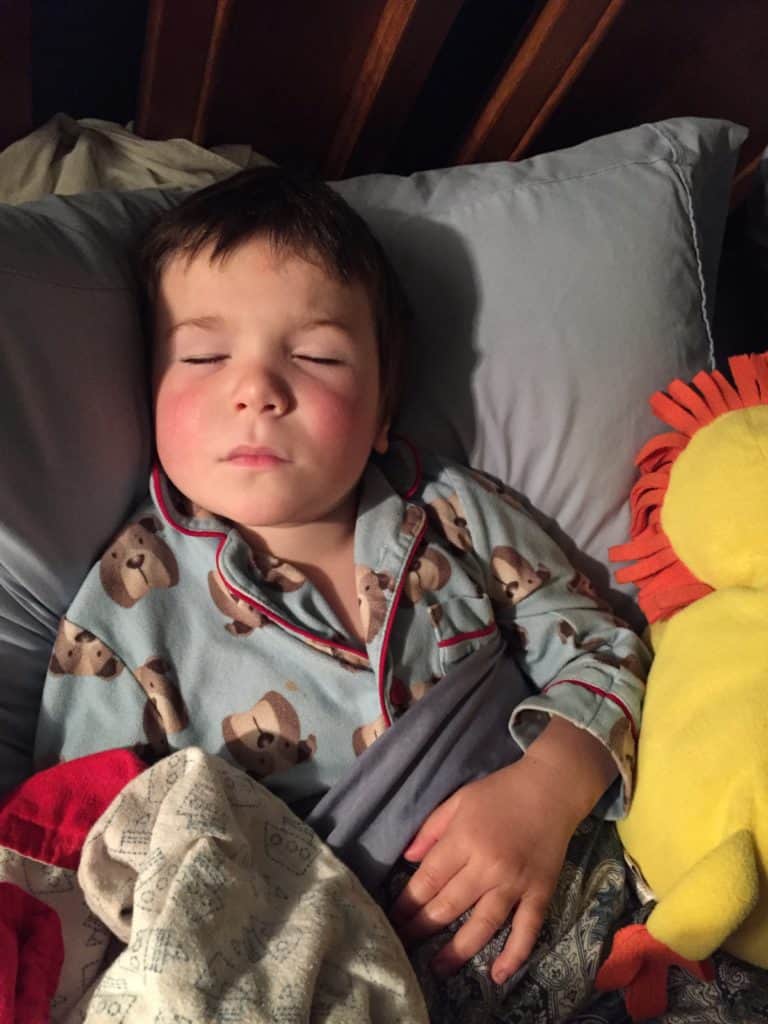
As our kids grew up, anxiety started to cause more sleep issues as well. I’ve talked about this in more detail in our post about self-care for anxiety. The main thing to recognize when your kids are dealing with sleep issues is that there may be more than one diagnosis that is impacting sleep.
The Basics of Healthy Sleep
What does healthy sleep look like? According to the National Sleep Foundation, the amount of sleep you need changes throughout life.
In early childhood, between 10-14 hours is typical. School-aged children need anywhere from 9-11 hours, with just a little less for older teens (14 and up). Healthy adults under 60 need about 7-9 hours each night. The majority of people need these amounts of sleep, but some individuals do well with a shorter sleep time.
Of course, sleep duration is only one factor: sleep quality is another. Sleep disturbances can make even a full night’s sleep much less effective, as any parent with a newborn or young children can tell you!
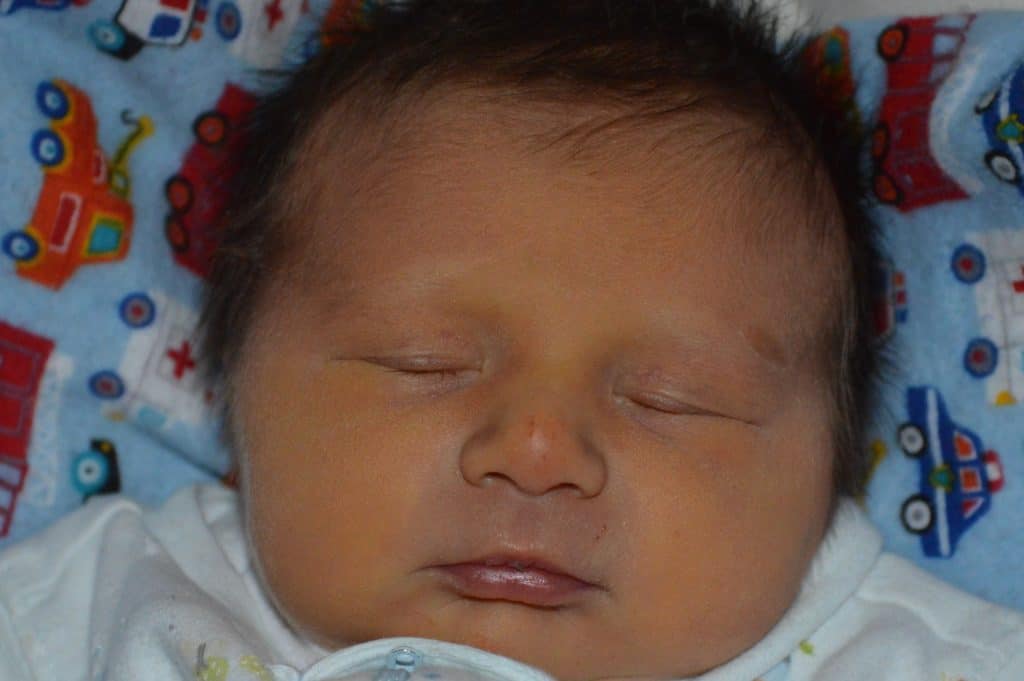
Effects of a lack of sleep
The short-term symptoms of sleep deprivation can produce ADHD-like symptoms of inattentiveness and impulsive behavior. Over the long term, sleep difficulties can increase the likelihood of developing many other illnesses and even psychiatric disorders.
According to the American Academy of Sleep Medicine, most sleep issues can be managed without medication if you catch them early. It’s good preventative care to get professional help before you develop severe sleep problems.
Sleep disorders and finding answers
When do sleep problems go from “mildly annoying symptoms of ADHD and anxiety” to “severe sleep issues”? At what point does “difficulty sleeping” become a medical issue? Excessive daytime sleepiness and insomnia are clear symptoms, but there are sleep problems that are less obvious.
Keeping a sleep journal (or using a sleep tracking app) can be a good starting point. When you’re struggling with sleep, thinking becomes difficult and your short term memory can be impacted. A sleep journal or tracker can give you an objective view of your sleep habits.
Your doctor may order a sleep study to get a more accurate assessment of your sleep habits. A sleep study can measure how long it takes for you to fall asleep (called “sleep onset latency”). It can also measure how restful your sleep is, and the quantity of sleep you actually get each night.
ADHD medication and how it impacts sleep
Brian and three of our children have an ADHD diagnosis. When we decided to try ADHD medication for them, one of my biggest questions was, “Will this stimulant medication cause sleep side effects?” We didn’t need more sleep issues!
We found that the opposite was true, in general. The ADHD brain seeks stimulation, and that’s why ADHDers have trouble shutting their brains off. Once that simulation is obtained, their brains often relax and settle down.
When Brian started taking the ADHD medication consistently, we were both surprised to discover that he had less trouble sleeping! The restless leg syndrome symptoms were much less frequent and he fell asleep more easily.
Anxiety and Sleep issues
Several of us (myself included) also have anxiety disorders that have impacted our sleep. Since both ADHD and anxiety can impact sleep issues, we needed to treat both before we could start to see if there were any other underlying sleep problems.
@dinkumtribe If you have been diagnosed with any of the following conditions, you should also talk to a doctor to rule out ADHD: Anxiety disorders, Bipolar disorder, Depression, Obsessive-compulsive disorder (OCD), Post-traumatic stress disorder (PTSD). #adhdfamilies #adhdcomorbidities #adhdparentquestions #dinkumtribe_adhd ♬ original sound – Joy
In addition, our family history includes family members who have dealt with bipolar disorder as well as obstructive sleep apnea. These disorders have symptoms that overlap with anxiety, ADHD, and other diagnoses. That’s why it was essential for us to get a professional diagnosis for sleep-related issues.
Diagnosis for sleep issues
The key point here is this: sleep difficulties can have many different factors involved. ADHD causes sleep issues all by itself, but there are a number of sleep disorders that can occur alongside ADHD.
If you are struggling to get good sleep, talk to a medical professional or sleep specialist. They can help rule out different conditions and make sure you are getting effective treatment.
Non-medication Sleep Help for ADHD and Anxiety
As I said earlier, many sleep difficulties can be treated effectively without using medication. Here are some of the tips and tools we use in our family to ensure that everyone has the best chance of regularly getting a good night’s sleep.
Practice Good Sleep Hygiene
Sleep hygiene includes everything you do to set yourself up for sleeping. My husband and I tried many of these tips before we got our diagnoses, and they made a huge difference in our sleep quality.
Prepare to sleep
Your brain and body respond to your environment. Practice going to bed and getting up at the same time every day whenever possible. Plan your day around how much sleep you need to feel your best, then create a bedtime routine that will help you get into bed on time and feel ready to sleep.
Time blindness can make it difficult for an adult or child with ADHD to get to bed in a timely manner. Allot more time than you think you’ll need.

If you are a parent of a child who struggles with ADHD or anxiety, you will need to ensure they have a consistent bedtime routine too. A few things that we (or other families) have found helpful to include in a bedtime routine are:
- A warm bath or shower. My husband struggles to fall asleep unless he takes a bath. It relaxes him.
- Dimming bright lights around the house 1-2 hours before bedtime
- Taking melatonin supplements. Many people find that this helps them fall asleep faster. Check with your doctor before taking ANY supplement.
- Limiting screen time 2 hours before bedtime. The blue light on mobile phone screens and other computer screens has been found to disrupt sleep when used too close to bedtime. It interferes with our bodies’ natural sleep-wake cycle and has an even greater impact on children’s sleep.
- Practicing some relaxation techniques, such as yoga, or even grounding techniques for anxiety.
- Lavender scented candles or sachets or oils can help relax the body.
@dinkumtribe Top tip for anxiety: Grounding exercises are great for kids and adults who struggle with anxiety. Something like this glitter lava lamp and some calm music can also help ground you in the moment. @dinkumtribe #adhdfamilies #adhdparenting #anxiousfeelings #howtocopewithanxiety #andthisishowicope #panicattackawareness ♬ Symphony No. 8 in B Minor, D. 759, “Unfinished”: II. Andante con moto – Günter Wand
Create a better sleep environment
Room darkening shades
This is one of the first things we buy and install when we move into a new place. Natural light is perfect for keeping you awake! We love to open every window we can during the day and get as much natural light inside as we can.

However, natural light also hinders sleep. Here in the Pacific Northwest, it stays light until 8 or 9 pm most of the summer and starts to get light in the morning by 5. That only allows for about 9 hours of decent sleep, unless you have a way to block the light.
Most kids need at least 10 solid hours of sleep. Since our kids are up at the crack of daylight (no matter how early that might be!), it’s essential for us to block incoming light during sleep hours.
These curtains block light, and some sound and heat as well.
Sound machine/ white noise machine
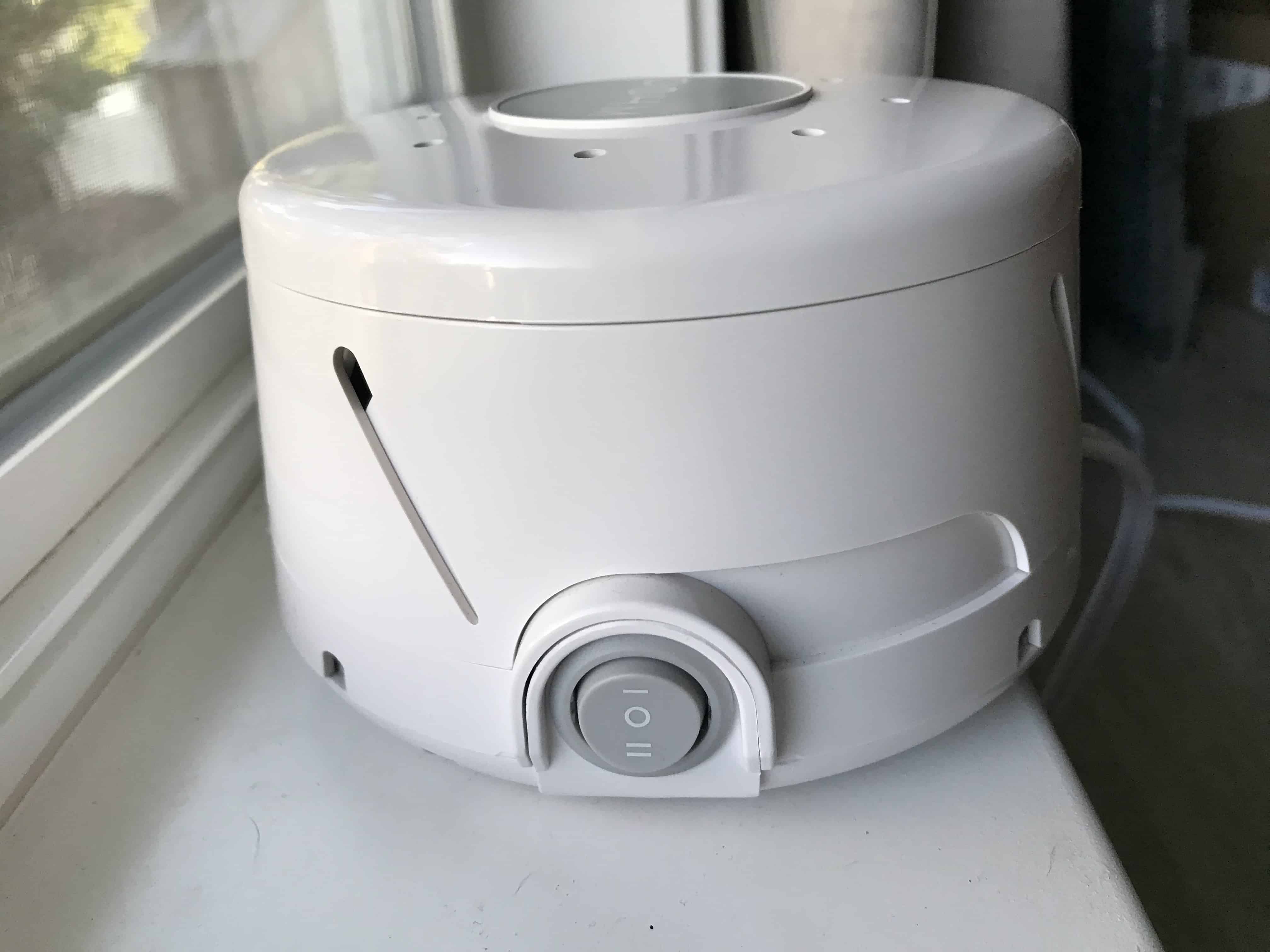
Our house is noisy! With eight people, a dog, and three cats, someone or something is always awake and making noise.
We have lived most of our married life near a freeway, train, light rail, airport, or construction zone. All of our previous homes were also older buildings that had almost no sound insulation.
Enter the white noise machine! We station one in each bedroom, and we take them with us when we travel.

I am a super light sleeper, and sound machines have been a godsend to help me sleep soundly while the rest of the house goes about its tasks.
A sound machine works great for daytime naps too. When most people aren’t sleeping, it’s harder to keep the house quiet, so a sound machine helps.
The machines we bought when our son was born are still going strong after nine years of daily use! They are worth the investment.
Tempur-Pedic mattress
Once upon a time, I worked at Brookstone and they had a huge employee discount on Tempur-pedic mattresses. We got one when we were first married, so I never realized how much my husband moves around as he’s getting settled in at night!

The first time we spent the night at a hotel together after a few years of marriage, I nearly kicked Brian out onto the floor. All his movement and fidgeting was keeping me awake! I had never noticed it before because our spring-free Tempur-Pedic mattress absorbed 90% of that motion.
ADHDers tend to have random bursts of energy that keep them from falling asleep easily and often translate into lots of movement at bedtime.
In recent years I noticed that Brian continues to twitch all night long, particularly if he is more stressed or has forgotten a dose of his ADHD medication. His twitching doesn’t keep him awake, but it drives me crazy!
If you share a bed with a restless sleeper, a Temper-Pedic mattress is totally worth the added cost.
Weighted blanket

I wasn’t sure this would work, since it is more recommended for people with sensory issues. However, since my husband has always been a person who “cocoons” himself in blankets no matter how hot it is, I thought this was worth a shot.
We got the twin sized one, so that he could have it on his side of the bed, and I wouldn’t be bothered with it. He found that it does a great job of helping him settle down faster.

We got a second weighted blanket for one of our daughters with ADHD, and she says it has made a huge difference for her.

Cool room
This is not a product so much as an environmental thing. If you have A/C, it is helpful if the room is at 68-70 degrees F when you are sleeping. Smart thermostats save energy and can help maintain that perfect sleeping temperature effortlessly.

In the winter, you may need to turn up the heat to maintain the ideal sleep temperature (68-70 degrees). We have found that when the room is kept at this temperature, we both sleep better.
Results of finding better sleep help for ADHD and anxiety
Our family has benefited enormously from working through our sleep challenges. We adjusted our sleep habits and sleep hygiene to give us the best chance possible for better nights. Reducing stress and getting better sleep gives us better days too. It’s like a spiral effect that continues to improve over time.
We’d love to hear if you have any other suggestions for getting good sleep consistently – drop your ideas in the comments!
© Copyright July 4, 2021 Jennifer D. Warren. Updated and expanded: August 22, 2022.
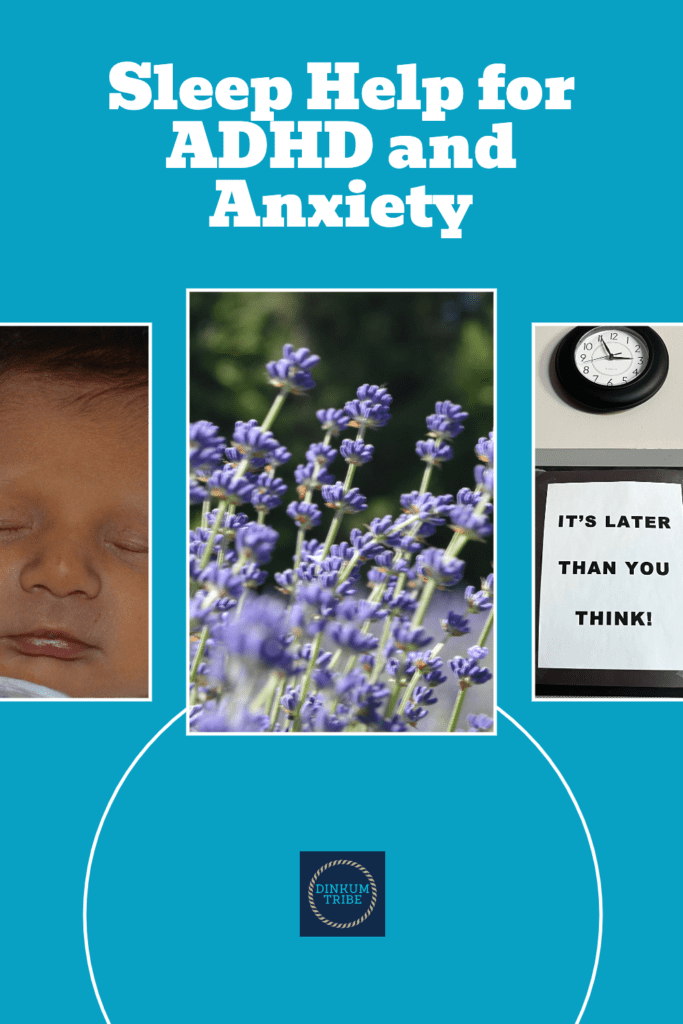
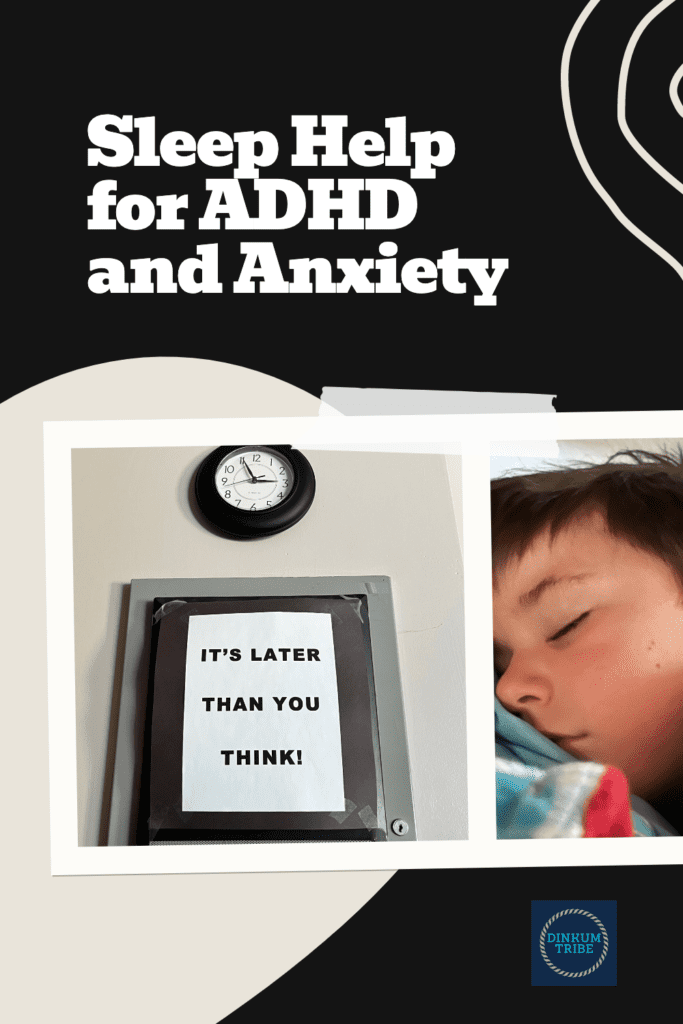
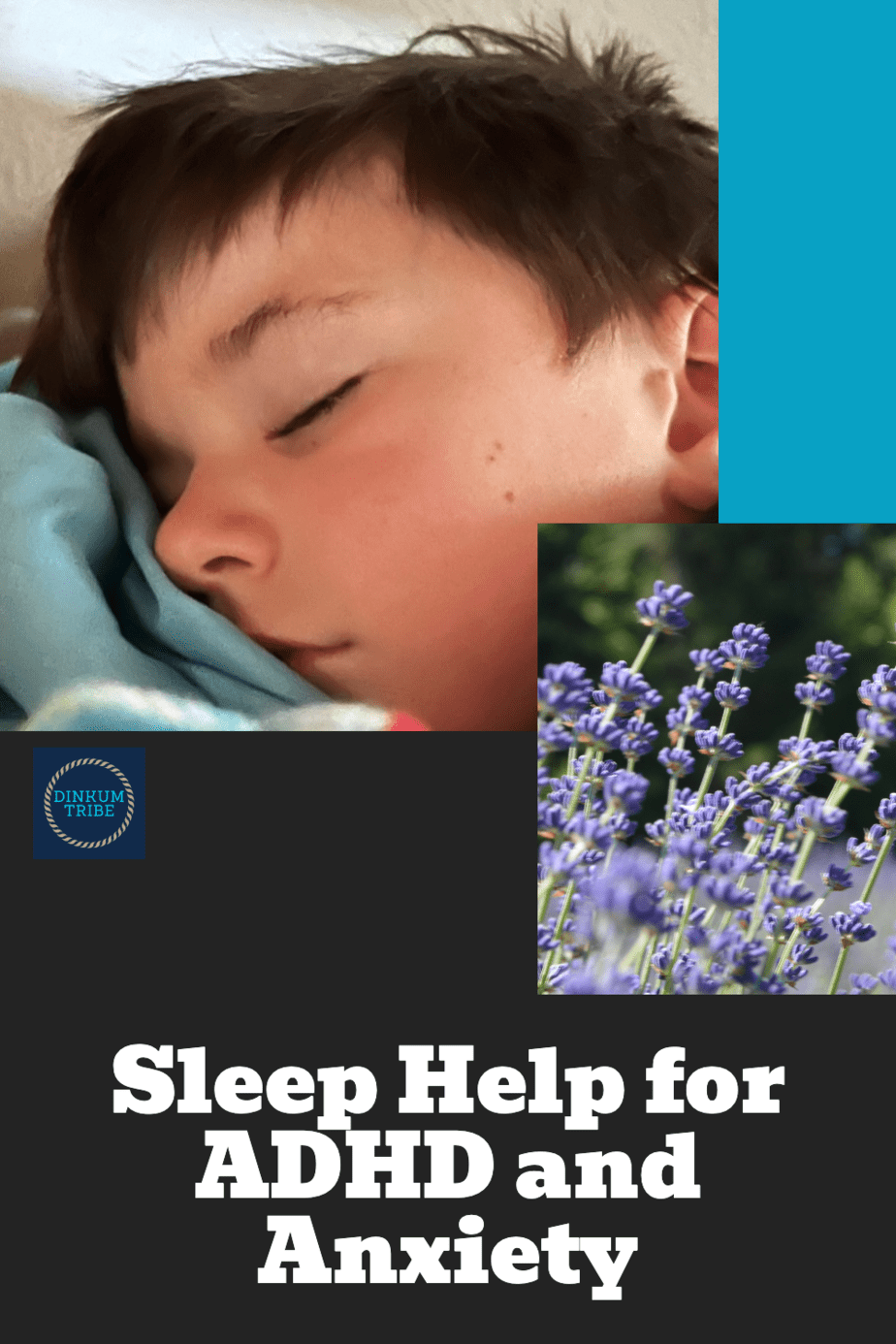

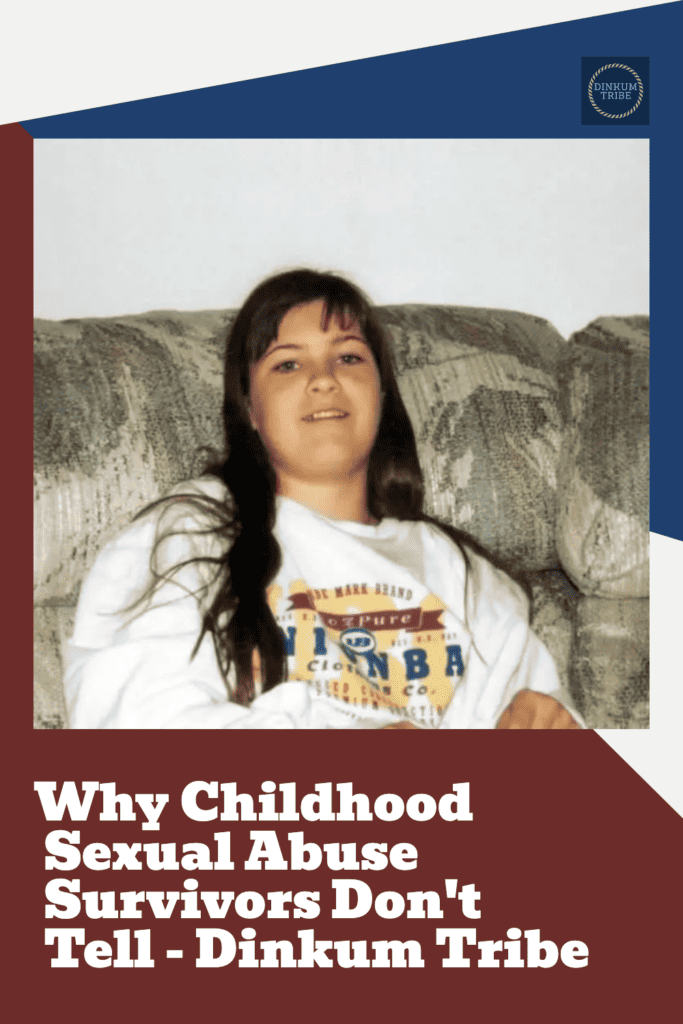
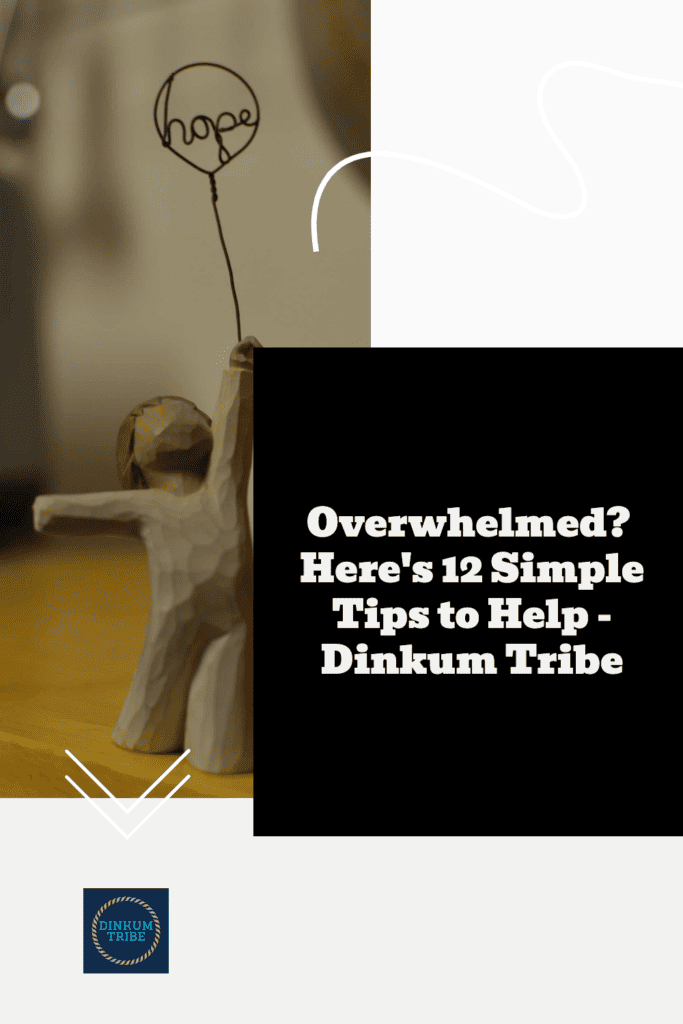
Oooh we have the same exact noise machines! It helps so much, especially if your partner breathes heavily or snores. I agree that keeping it cool has helped me a lot, and a magnesium supplement too.
I seriously don’t know how we would ever sleep without the noise machines.
Really liked reading your post. I must say white noise is a life saver. My kids r 4 yr old but we still use that. I like the idea of using pedic mattress.You have covered all important points for a good sleep.
Thanks for dropping by!
I have been interested in a weighted blanket for a while now. We definitely have issues with anxiety in particular that can affect sleep. Thanks for the tips!
Thanks for dropping by!
Love this! Thank you for sharing.
You’re welcome.
Great post and thanks for highlighting this especially if it comes up for parents and their kids. I love having a weighted blanket and it definitely has helped with me having more ease in sleeping.
Weighted blankets can make such a difference!
There are so many helpful tips here for people suffering from a lack of sleep due to ADHD and anxiety. Thank you for this!
You’re welcome!
As a neurodivergent therapist who not only specializes in treating ADHD, but is happily married and have 3 neurodivergent kids, I approve of this list 🙂
Thank you! I appreciate the work you are in – so needed!
I like this post! Sleep is so important at any age and you’re right it’s not just about how many hours we sleep it’s more like the quality of our sleep. I usually have trouble sleeping especially when I’m stressed, but I found some tips that helped me get a better sleep like meditating, using an essential oil diffuser, regulating the room temperature etc. Thank you for sharing this helpful post!
Absolutely. Meditation is another great idea!
Wonderful ideas, all of them! I keep forgetting that a warm bath or shower is helpful, possibly because I’m sleep deprived : ) I also keep meaning to try the weighted blanket for my son, so will have to get on task with that. I really appreciate the reminders here, thanks so much!
I’m so glad it’s helpful – we all need reminders when we’re sleep deprived! Hope you get better sleep soon.
This is a very helpful post. I struggle with sleep and my daughter, who was recently diagnosed with ADHD, has as well. We’ve had a similar experience–stopped napping by two, restlessness, frequent wakings. It seems we’re always coming up with new sleep strategies. We’ll try some of these.
I hope some of the ideas are helpful for you both.
Excellent tips for sure. A weighted blanket and white noise are wonderful. I agree keeping track helps along with a cool room and consistent bedtimes. Thank you for sharing your story and these wonderful sleep suggestions. 🤗
Pastor Natalie (ExamineThisMoment)
Letstakeamoment.com
You’re welcome – thanks for stopping by!
I struggle a lot with sleep, even since I was a child I had problems. What helps me now is just working until late hours or if I go to uni, it makes me so tired and stressed – one visit at uni = month of going to sleep earlier.
I hope you continue to find sleep tips that help you.
This is such a great post! Thank you so much for sharing these tips, they are extremely helpful and will come in handy
Thanks for stopping by.